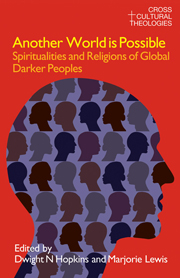Book contents
- Frontmatter
- Dedication
- Contents
- Acknowledgements
- Contributors
- Introduction
- Part I India
- Part II Japan
- Part III Australia
- Part IV Hawaii
- Part V England
- Part VI South Africa
- Part VII Botswana
- 10 HIV+ Feminisms, Postcoloniality and the Global AIDS Crisis
- 11 Soliloquy of a Troubled Heart: Trying to Make Sense of Senseless Femicide
- Part VIII Zimbabwe
- Part IX Ghana
- Part X Cuba
- Part XI Jamaica
- Part XII Brazil
- Part XIII USA
- Endnotes
- Select Bibliography
- Index of Subjects
- Index of Names
11 - Soliloquy of a Troubled Heart: Trying to Make Sense of Senseless Femicide
from Part VII - Botswana
- Frontmatter
- Dedication
- Contents
- Acknowledgements
- Contributors
- Introduction
- Part I India
- Part II Japan
- Part III Australia
- Part IV Hawaii
- Part V England
- Part VI South Africa
- Part VII Botswana
- 10 HIV+ Feminisms, Postcoloniality and the Global AIDS Crisis
- 11 Soliloquy of a Troubled Heart: Trying to Make Sense of Senseless Femicide
- Part VIII Zimbabwe
- Part IX Ghana
- Part X Cuba
- Part XI Jamaica
- Part XII Brazil
- Part XIII USA
- Endnotes
- Select Bibliography
- Index of Subjects
- Index of Names
Summary
Peacemaking is gathering around the hearth where we learn the hearth of love, we hearth the song of peace, we develop the hearth to give and become one with God's creation in the whole hearth!
The year 1999 did not only mark the end and a beginning of a millennium but also marked the birth of a new century. With the approach of the end of the twentieth century came a lot of millennial excitement, which as expected was clothed in apocalyptic anxiety. It is unfortunate that the reading of the apocalyptic literature, in particular the book of Revelation, has given birth to viewing violence as inevitable and somewhat necessary as it points to the coming of a new era, an era of God's shalom for the chosen few. Reading the apocalyptic scripture this way is unfortunate as it justifies violence. Of course this reading cannot be completely blamed on the reader as such literature is littered with militaristic violence of proportions not known to humanity. The year 1999, therefore, marked “the end of the most violent century in human history.”
The year 2000 marked the new era, a new beginning, and a century of hope, “peace and goodwill towards humans.” It is in this regard that the World Council of Churches declared a “Decade to Overcome Violence” which was hatched at its Harare Assembly. The Decade to Overcome Violence is a journey that points beyond itself.
- Type
- Chapter
- Information
- Another World is PossibleSpiritualities and Religions of Global Darker Peoples, pp. 160 - 180Publisher: Acumen PublishingPrint publication year: 2009



